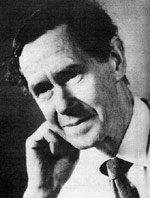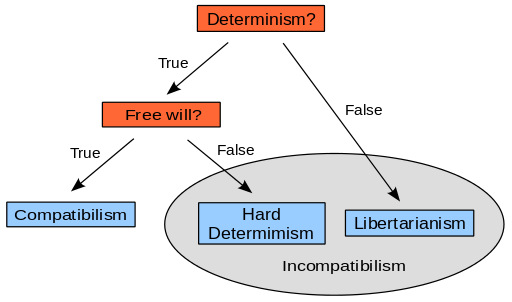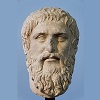5.2: JL Mackie
- Page ID
- 15304

John Leslie Mackie, 1917 – 1981 CE, usually writing as J. L. Mackie, was an Australian philosopher. He made significant contributions to the philosophy of religion, metaphysics, and the philosophy of language, and is perhaps best known for his views on meta-ethics, especially his defense of moral scepticism.
He authored six books. His most widely known, Ethics: Inventing Right and Wrong (1977), opens with the well known statement that “There are no objective values.” It goes on to argue that because of this ethics must be invented, rather than discovered. Moral skepticism basically (this is far too simply stated) that no one has any moral knowledge. Many moral skeptics also make the claim that moral knowledge is impossible. All morality is simply a matter of preference or custom. Or so might Mackie say.
You might want to start with this short Crash Course description of Meta-ethics “In it Hank explains three forms of moral realism – moral absolutism, and cultural relativism, including the difference between descriptive and normative cultural relativism – and moral subjectivism, which is a form of moral antirealism. Subjectivism is Mackie’s primary focus over a lifetime of writing.”[1]

If you would like a simple description of this image and more information about Mackie, please check JL Mackie
There are no objective values….
“Since it is with moral values that I am primarily concerned, the view I am adopting may be called moral skepticism. But this name is likely to be misunderstood: ‘moral skepticism’ might also be used as a name for either of two first order views; or perhaps for an incoherent mixture of the two.
A moral skeptic might be the sort of person who says ‘All this talk of morality is tripe,’ who rejects morality and will take no notice of it. Such a person may be literally rejecting all moral judgments; he is more likely to be making moral judgments of his own, expressing a positive moral condemnation of all that conventionally passes for morality; or he may be confusing these two logically incompatible views, and saying that he rejects all morality, while he is in fact rejecting only a particular morality that is current in the society in which he has grown up. But I am not at present concerned with the merits or faults of such a position. These are first order moral views, positive or negative: the person who adopts either of them is taking a certain practical, normative, stand. By contrast, what I am discussing is a second order view, a view about the status of moral values and the nature of moral valuing, about where and how they fit into the world. These first and second order views are not merely distinct but completely independent: one could be a second order moral skeptic without being a first order one, or again the other way round. A man could hold strong moral views, and indeed ones whose content was thoroughly conventional, while believing that they were simply attitudes and policies with regard to conduct that he and other people held. Conversely, a man could reject all established morality while believing it to be an objective truth that it was evil or corrupt.”
JL Mackie from Ethics: Inventing Right and Wrong,
Further materials from Professor Mackie can be found in a bibliography of his work.
- Truth, Probability, and Paradox (1973), Oxford University Press, ISBN 0-19-824402-9.
- The Cement of the Universe: A Study of Causation (1980 [1974]), Oxford University Press, ISBN 0-19-824642-0.
- Problems from Locke (1976), Oxford University Press, ISBN 0-19-824555-6.
- Ethics: Inventing Right and Wrong (1977), Viking Press, ISBN 0-14-013558-8.
- Hume’s Moral Theory (1980), Routledge Keegan & Paul, ISBN 0-7100-0525-3.
- The Miracle of Theism: Arguments for and against the Existence of God (1982), Oxford University Press, ISBN 0-19-824682-X.
- Logic and Knowledge: Selected Papers, Volume I (1985), Oxford University Press, ISBN 0-19-824679-X.
- Persons and Values: Selected Papers, Volume II (1985), Oxford University Press, ISBN 0-19-824678-1.
- description from the YouTube page ↵


